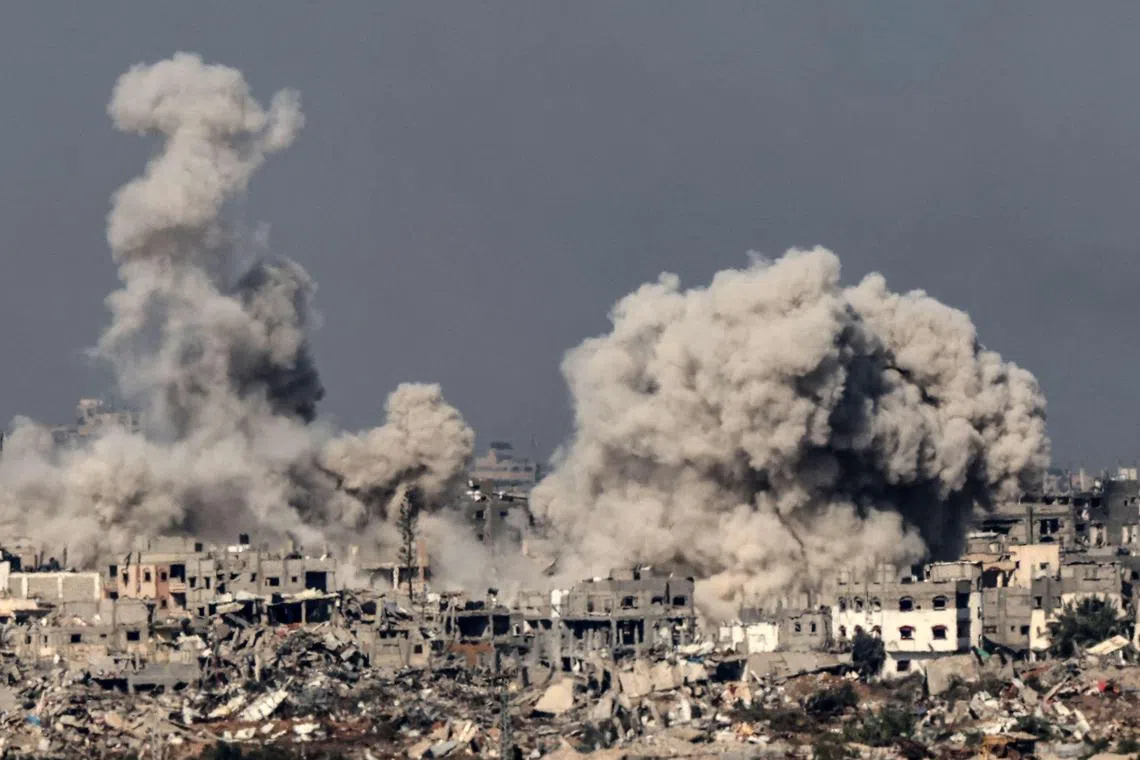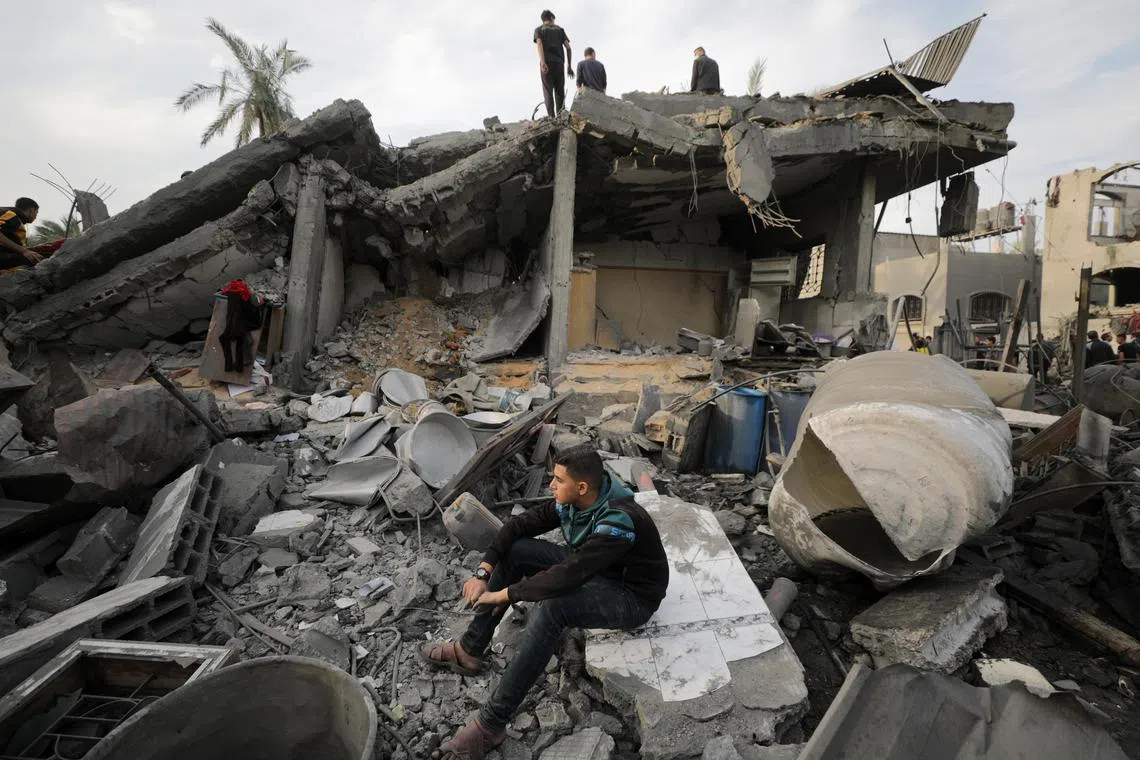US blocks UN Security Council demand for humanitarian ceasefire in Gaza
Sign up now: Get ST's newsletters delivered to your inbox

Smoke rising amid an Israeli strike in the northern Gaza Strip, in a picture taken from southern Israel on Dec 8.
PHOTO: AFP
UNITED NATIONS – The United States on Dec 8 vetoed a United Nations Security Council demand for an immediate humanitarian ceasefire in Gaza.
At the same time, it kept up pressure on Israel to do more to protect Palestinian civilians during a fierce offensive against Hamas militants across the enclave
The vote left Washington diplomatically isolated on the 15-member council.
Thirteen Security Council members voted in favour of a brief draft resolution put forward by the United Arab Emirates (UAE), while Britain abstained.
The US’ Deputy Ambassador to the UN Robert Wood told the council: “We do not support this resolution’s call for an unsustainable ceasefire that will only plant the seeds for the next war.”
The US and Israel oppose a ceasefire, saying it would benefit Hamas, which Israel has vowed to annihilate in response to the militants’ deadly Oct 7 attack.
Washington instead supports “pauses” like the seven-day halt in fighting
Palestinian Authority President Mahmoud Abbas said the US’ veto made it complicit in what he described as war crimes against Palestinians.
Mr Abbas also said he held the US responsible for the bloodshed of Palestinian children, women and the elderly in the Gaza Strip, a statement released by the presidency on Dec 9 said.
The UN vote had come after Secretary-General Antonio Guterres made a rare move on Dec 6 to formally warn the 15-member council of a global threat from the two-month-long war
Deputy UAE Ambassador to the UN Mohamed Abushahab asked the council: “What is the message we are sending Palestinians if we cannot unite behind a call to halt the relentless bombardment of Gaza? Indeed, what is the message we are sending civilians across the world who may find themselves in similar situations?”
The US had offered substantial amendments to the draft, including a condemnation of the Oct 7 Hamas attack that Israel says killed 1,200 people
Britain’s UN Ambassador Barbara Woodward said her country abstained because there was no condemnation of Hamas.
“Israel needs to be able to address the threat posed by Hamas and it needs to do so in a manner that abides by international humanitarian law so that such an attack can never be carried out again,” she told the council.
Palestinian UN envoy Riyad Mansour told the council the result of the vote was “disastrous”, adding: “Millions of Palestinian lives hang in the balance. Every single one of them is sacred, worth saving.”
Israel’s UN Ambassador Gilad Erdan did not address the Security Council after the vote, but in a statement said: “A ceasefire will be possible only with the return of all the hostages and the destruction of Hamas.”
In Iran, the main backer of Hamas, Foreign Ministry spokesman Nasser Kanaani said: “Once again the US government has demonstrated that it is the main actor in the killing of Palestinian civilians, particularly women and children, and the destruction of Gaza’s vital infrastructure.”
The White House on Dec 8 said more could be done by Israel to reduce civilian casualties, and the US shared international concerns about the humanitarian situation in Gaza.
“We certainly all recognise more can be done to try to reduce civilian casualties,” White House National Security Council spokesman John Kirby told reporters.
On Dec 7, US Secretary of State Antony Blinken sharpened Washington’s language, saying it was imperative that Israel took steps to safeguard Gaza’s civilian population.
“And there does remain a gap between… the intent to protect civilians and the actual results that we’re seeing on the ground,” he told a press conference. REUTERS

Palestinians at a destroyed house on Dec 8, following Israeli air strikes in Deir Al-Balah, in the central Gaza Strip.
PHOTO: EPA-EFE


